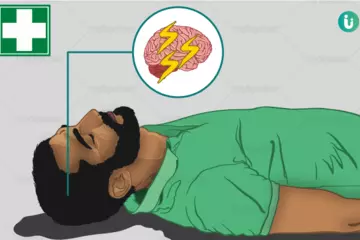What is sleep talking?
Sleep talking or somniloquy is a sleep disorder in which the person talks during their sleep but is not aware of it. The talks might entail irrelevant or relevant dialogues or monologues, incomplete sentences, murmuring or muttering. Sleep talking is not very commonly seen and even in cases where it occurs, the person only talks for a short while during their sleep. The condition can affect anyone but is mostly seen among men and children. Estimates suggest that almost 50% of young children and 5% of adults are sleep talkers. Sleep talking also runs in families and can pass from one generation to another.
Here is the complete detail about the solution to the sleep disorder.
It is possible that a sleep talker starts talking spontaneously or might talk under the influence of a person sitting beside him and start an unoriented conversation. Alternatively, they might talk total gibberish.
Usually, what a person is going through in his life plays a key role in the talks, such as past experiences, relationships, work deadlines though sometimes these talks are out of the blue and have no relation with the person's life and physical well being.
Modern sleep science says that sleep talking has absolutely no relation with the conscious or rational mind, therefore, talks during sleep are not admissible in court for the sake of evidence regarding any case.
(Read More - Why you wake up in the middle of the night)
What is the cause?
Sleep talking may occur due to the following reasons -
- Stress
- Depression
- Sleep deprivation
- Day time drowsiness
- As an effect of alcohol
- Fever
- Nightmares, sleep apnea, confusional arousal, REM sleep behaviour disorder can induce sleep talking
- In adults, sleep talking has been linked with psychiatric disorders and nocturnal seizures
- Somniloquy has also been closely linked with mental illness like Dementia with Lewy bodies (DLB), Vascular Dementia and Alzheimer's disease
(Read More - Sleep chart)
Symptoms
Sleep talking varies according to sleep stages. Sleep has four stages:
broken down into two different types:
Non REM (non-rapid eye movement) sleep: Consists of the first three stages
REM (rapid eye movement) sleep: Begins about 1.5 hours after you sleep
Stage 1 and stage 2 comprise periods of light sleep. In this stage, sleep talkers can have a conversational speech that is easy to understand whereas in deep sleep stages - stage 3 and stage 4 - a sleep talker usually talks indistinctly.
Symptoms of sleep talking vary according to the severity and duration of the disorder.
The National Sleep Foundation, U.S., classifies sleep talking according to its severity:
- Mild: When episodes of sleep talking occur once a week or once every two weeks
- Moderate: When episodes of sleep talking occur more than once per week and cause little disturbance to the sleeping partner
- Severe: When episodes of sleep talking occur every night and may cause significant disturbance to the sleeping partner
Classification of sleep taking according to time:
- Acute: Occurring for 1 month or less
- Subacute: Occurring for more than 1 month but less than 1 year
- Chronic: Occurring for 1 year or longer
A sleep talker might show a few additional symptoms other than talking sense or nonsense like:
- Sleep Terrors
- Sleepwalking
- Confusional Arousals
- Obstructive Sleep Apnea Syndrome
- REM Sleep Behavior Disorder
- Psychiatric Disorders
- Nocturnal Seizures
(Read More - Sleep and mental health)
Diagnosis and treatment
There are no specific diagnostic tests for sleep talking. Your consultant doctor will take your detailed history including medical and surgical history, analysis of sleep behaviour and sleep talks by asking your friends and family. He/she may also run some tests to evaluate your brain waves during sleep.
Concluding a diagnosis with sleep talking, your doctor will provide you with ways to manage the condition. In mild cases, no treatment is needed; however, in case of severe sleep talking, management of the underlying factors is extremely important.
Calming down the mind before sleeping, meditating, following a sleep schedule and taking an adequate amount of sleep is very helpful in reducing the episodes of sleep talking.
Cutting down alcohol, avoiding heavy meals, and stress management seems to have a positive effect on sleep talking.
(Read More - Narcolepsy treatment)

 Doctors for Sleep talking
Doctors for Sleep talking  OTC Medicines for Sleep talking
OTC Medicines for Sleep talking



















